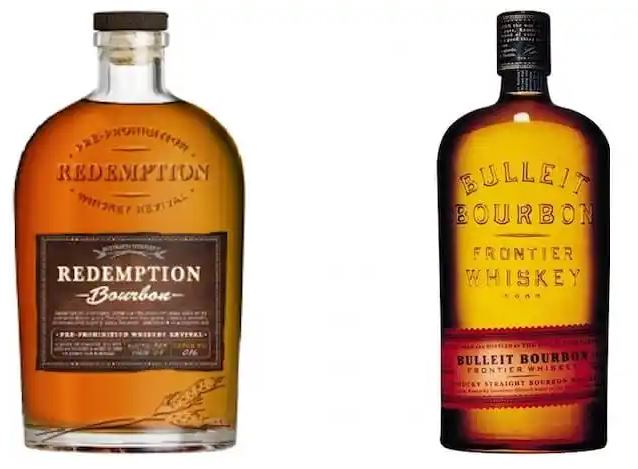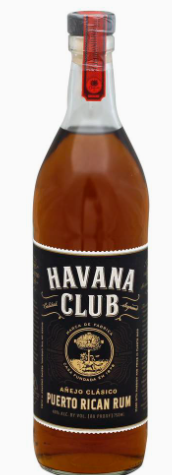2024 has been a busy year in all intellectual property. It has been especially busy in trademark law. Here are the top seven cases in trademark law to date.
1. Vidal v. Elster, 602 U.S. 286 (2024)
Steve Elster sought to register "TRUMP TOO SMALL" on shirts and hats WITHOUT Donald Trump's consent. The Patent and Trademark Office (PTO) and the Trademark Trial and Appeal Board denied the registration based on the Lanham Act's "names clause," which prohibits the registration of a trademark that "consists of or comprises a name . . . identifying a particular living individual except by his written consent." Elster argued the clause violates his First Amendment right to free speech. The Supreme Court held that the tradition and purpose of trademark law is to protect an individual's right to ownership over his own name and ensures that the First Amendment is not violated.
2. Diageo N. Am., Inc. v. W.J. Deutsch & Sons Ltd., No. 22-2106, 2024 WL 2712636 (2d Cir. May 28, 2024)

Diageo has used the Bulleit packaging design trademark and trade dress since 1999 on its whiskey products. Deutsch acquired the whiskey brand "Redemption," launching new packaging in 2016. Diageo sued Deutsch in 2017 for trademark infringement and dilution under federal law and the New York General Business Law. The Second Circuit affirmed a jury verdict finding no infringement of trade dress owned by Diageo (shown above on the right), as compared to Deutsch's Redemption design (shown above on the left) but finding dilution of the same trade dress under federal and New York State law. The appellate court held that there was sufficient evidence to support the jury's finding of fame on the dilution claim in favor of Diageo and that the packaging design was substantially similar for purposes of a New York dilution claim. The most compelling evidence was that Deutsch wanted to copy the Diageo design.
3. Bacardi & Co. v. United States Patent & Trademark Office., No. 22-1659, 2024 WL 2966084 (4th Cir. June 13, 2024)

Cuba and Bacardi have been battling over the "HAVANA CLUB" mark since the 1930s. In 2006, the Cuban government attempted to renew its trademark registration but was blocked by a trade embargo. In 2016, the Commissioner for Trademarks granted the 2006 application and renewed the trademark.
Bacardi sued the PTO under the Administrative Procedure Act (APA) for acting outside its statutory authority, by allowing Cuba to renew the registration after expiration. The district court dismissed it for lack of subject matter jurisdiction.
The Fourth Circuit held that Bacardi is permitted to challenge the PTO's grant in federal court holding that the APA allows such judicial review.
4. Pa. State Univ. v. Vintage Brand, LLC, No. 4:21-CV-01091, 2024 WL 456139 (M.D. Pa. Feb. 6, 2024), clarified on denial of reconsideration, No. 4:21-CV-01091, 2024 WL 1416505 (M.D. Pa. Apr. 2, 2024)
Vintage Brand, LLC is a sports apparel brand that features historical images of various universities' logos including Penn State trademarks owned by the school. Typically, the images are visually distinct, and Vintage provides a number of disclaimers that it is not affiliated with Penn State and is sold having Vintage's logo on its merchandise and shipped in Vintage branded wrapping.
Penn State filed suit.
The Middle District of Pennsylvania dismissed Penn State's counterfeit claim. However, the district court held that the trademark infringement claim and likelihood of confusion determination was for the jury, as well as Vintage's defense that the use of Penn State's marks on Vintage apparel was "ornamental."
5. Luca McDermott Catena Gift Tr. v. Fructuoso-Hobbs SL, 102 F.4th 1314 (Fed. Cir. 2024)
Three family trusts, each a limited partner in the California-based Paul Hobbs Winery, together own 21.6 percent of the Paul Hobbs Winery, WHICH owns the trademark "PAUL HOBBS" for wines in class 33. The three TRUSTS filed a petition to cancel the appellees' marks on grounds of likelihood of confusion and fraud. The petition was dismissed because the family trusts were minority owners of Hobbs Winery and did not have the rights in the mark, lacking a statutory entitlement. The Federal Circuit Court affirmed the Trademark Trial and Appeal Board's determination that the appellant lacked the statutory right to seek cancellation of the marks under 15 U.S.C. § 1064., finding that because the family trusts were merely minority owners of the winery who did not use or possess rights in the mark at issue, they lacked statutory entitlement to bring the cancellation action applying the U.S. Supreme Court's Lexmark case.
6. Dewberry Engineers Inc. v. Dewberry Grp., Inc., 77 F.4th 265 (4th Cir. 2023)
Dewberry Engineers sued Dewberry Group, a fellow real estate development company that rebranded more than a decade after the two companies reached a confidential settlement agreement regarding the use of the "Dewberry" mark, federally registered by Dewberry Engineers. Dewberry Group sued for breach of contract and trademark infringement. The district court granted, and the Fourth Circuit affirmed summary judgment to Dewberry Engineer's granting the trademark holder of the "Dewberry" mark's motion for summary judgment and awarding $43 million in profit disgorgement and attorney fees.
7. TBL Licensing, LLC v. Vidal, in her capacity as Director of the U.S. Patent and Trademark Office, 98 F.4th 500 (4th Cir. 2024)
TBL Licensing, LLC makes Timberland boots and tried to register certain features from the design of the popular boot under the Lanham Act as trade dress. The USPTO denied the application on grounds that the features were not distinctive. On appeal to the federal district court, the court affirmed and added that the features were impermissibly functional. The Fourth Circuit affirmed the grant of summary judgment holding and refused registration of the Timberland trade dress holding that there was no error in concluding that the group of design features lacked distinctiveness in the public's view to bar protection under trade dress.
* * *
Stay ahead of the curve in trademark law by exploring the most impactful cases of 2024. These cases could significantly impact the requirements for obtaining and maintaining trademark protections. If you have any questions or need guidance, please reach out to Catherine F. Hoffman, Edward D. Lanquist, or a member of Baker Donelson's Intellectual Property Team.